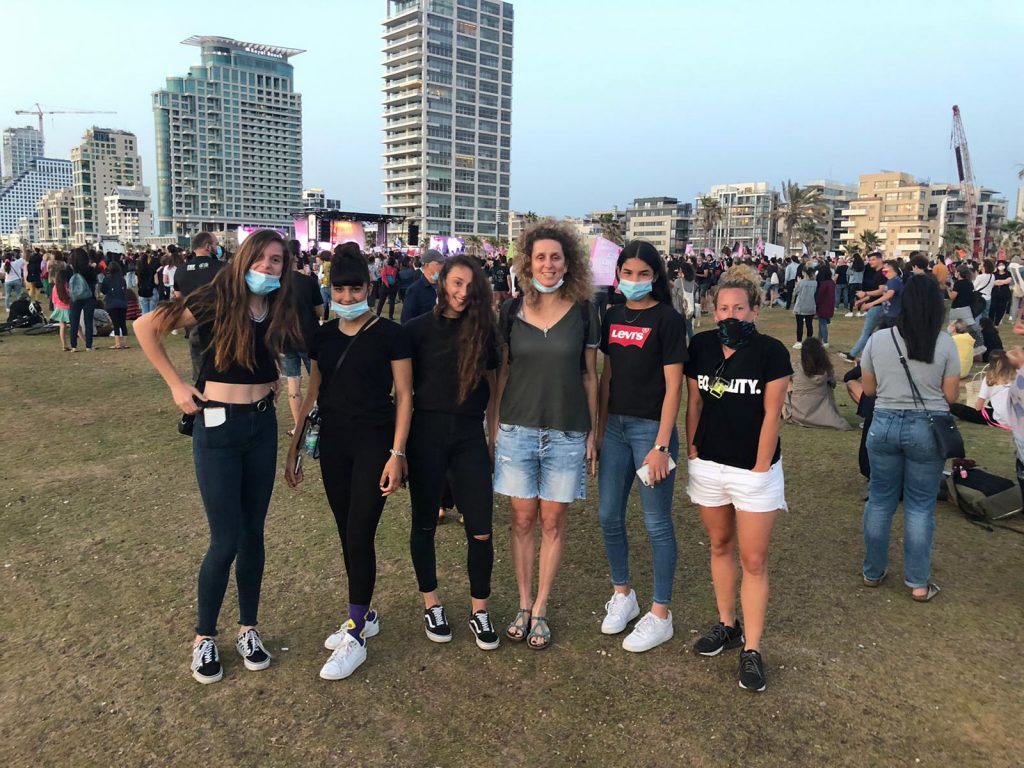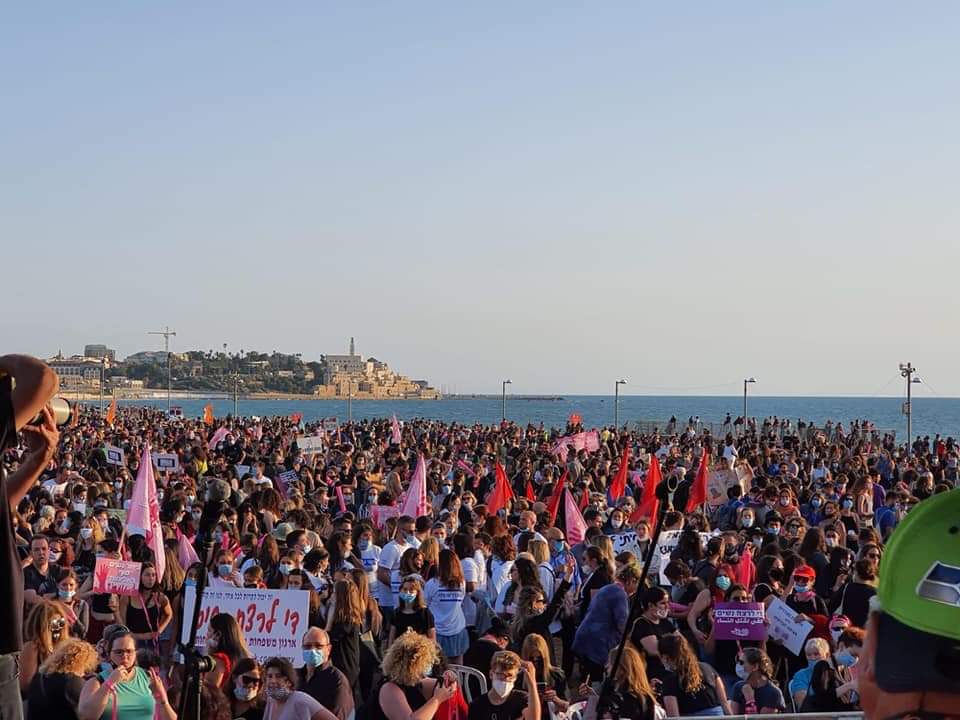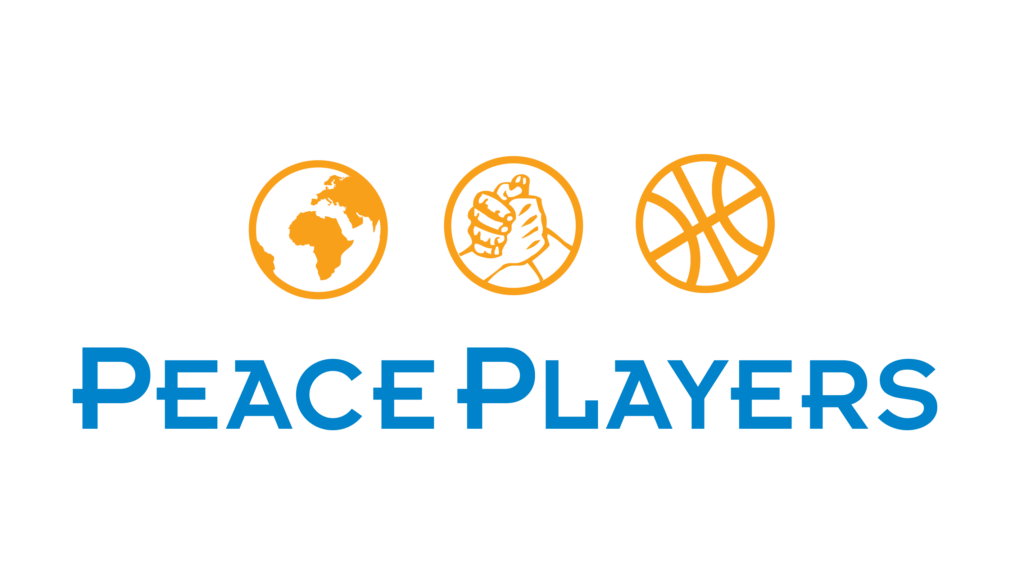Arab and Jewish Young Leaders Protest Together Against Gender-Based Violence
June 17, 2020
SHARE
In Israel, like in other places around the world, several hotlines and women’s shelters have revealed an increase in reports of domestic violence during the coronavirus pandemic. On March 19th, the government declared a national state of emergency and enforced a lockdown in and around Israel. In February, hotlines supporting survivors of gender-based violence received 316 calls. In March, this number increased to 344, and in April, the figure jumped to 849 calls. By May, the hotline received 1885 calls, highlighting an extremely unsettling increase in cases of gender-based violence. Even though the number of women reporting their cases skyrocketed during the crisis, it is believed that the actual number is much higher.

From left to right: Tamar, Sireen, Karny, Tamar (Karny’s mother), Hadar, and Rebecca. Credits: Sharon Sheinbaum.
As a response to these increased reports of domestic violence and the lack of government action, on the 1st of June, over 12,000 women protested against domestic violence and demanded the government take action. Amongst them were some of PeacePlayers’ Arab and Jewish young leaders, joined by PeacePlayers staff. Tamar, a Jewish participant’s mother, volunteered to drive all of PeacePlayers’ young women attending the protest. She picked them up from the divided neighborhoods of East and West Jerusalem, and joined them as they demanded justice for women. Her daughter, Karny, shared the following on her experience of being a part of the protest, and having her mother there to support her:
“I felt proud of myself when I went to the protest and showed my support, even if that was the least I could do to show the women who suffer from this that I support them. It felt good to know that women from all over the country came to Tel Aviv for this cause, which is super important. And it was amazing to see how much my mom cares about this issue, she has always talked to me, and wanted me to know everything about equality and women’s rights – and i know that being in the protest with us meant a lot to her.”

Like Karny, her Arab and Jewish teammates and friends also felt proud and inspired to be there together, fighting for a cause that affects both of their communities at such a large scale. At the end of the protest, Sireen, a 16-year-old Arab woman could not contain her feeling of empowerment and appreciation. She shared with her head coach, Rebecca Ross: “Thank you for bringing me along. It was a very empowering and important moment for me. I heard about these protests before and I always wanted to take part in it, this was my first time.”
Sharon Sheinbaum, one of PeacePlayers Middle East’s latest recruits, who worked with participants during the lockdown, supporting virtual activities focused on mental health and cyberbullying, shared: “It was exciting and meaningful to be there with the girls, it made me feel like we are actually doing things. The girls were really excited, they went all the way in, they yelled, they screamed and really took part in the protest. It felt like they needed this. And it meant a lot for me to see them, they are the next generation. And as women, we need to stand for ourselves.”
Together, Karny, Hadar, Sireen, Tamar, Rebecca, Sharon and Karny’s mother chanted amongst thousands of women, in both Hebrew and Arabic, demanding justice and safety for all women. Even though there is still a long way to go, the protest brought back hope, as several generations of women have together reinforced that they will not stop fighting until they get justice and safety for all women in and around Israel.



